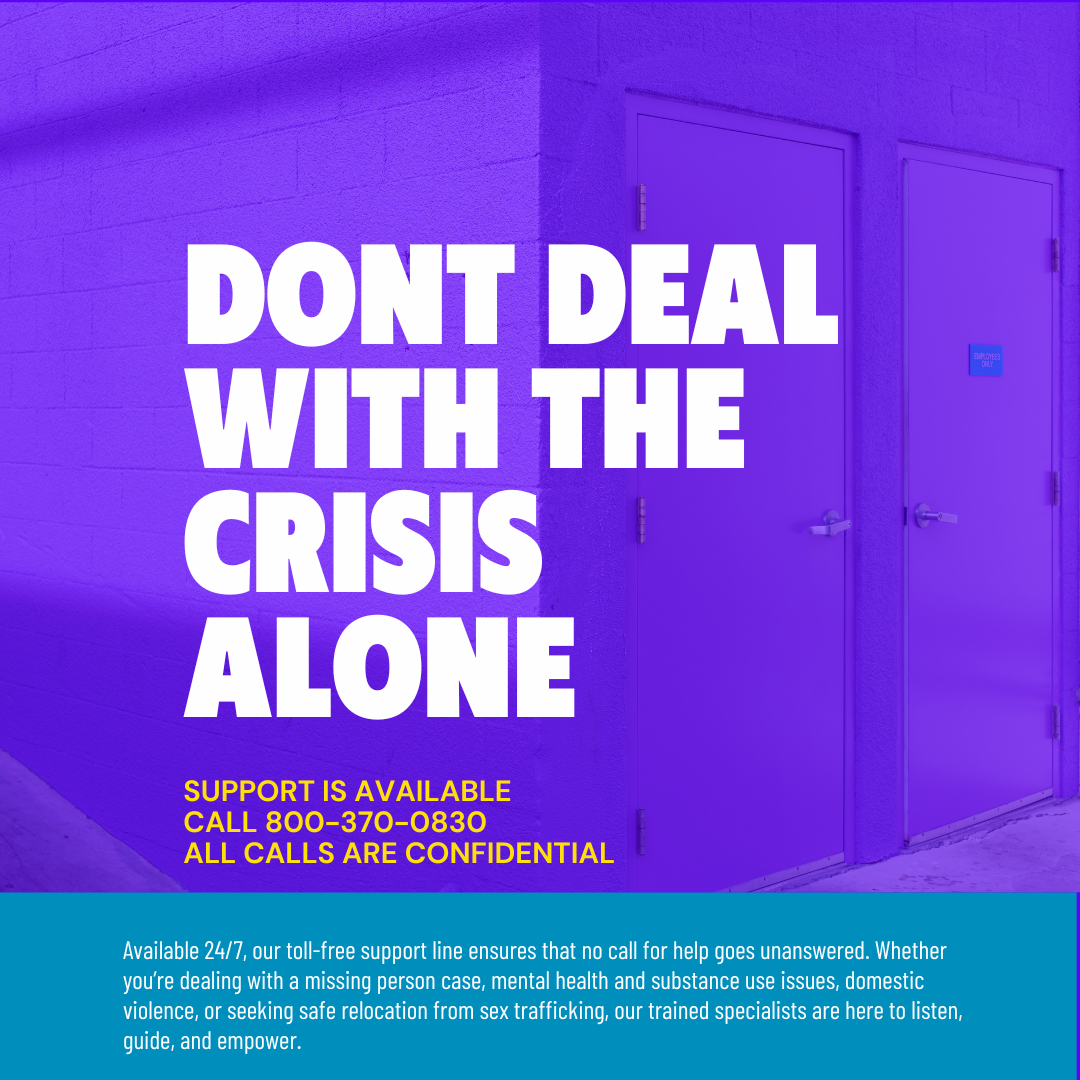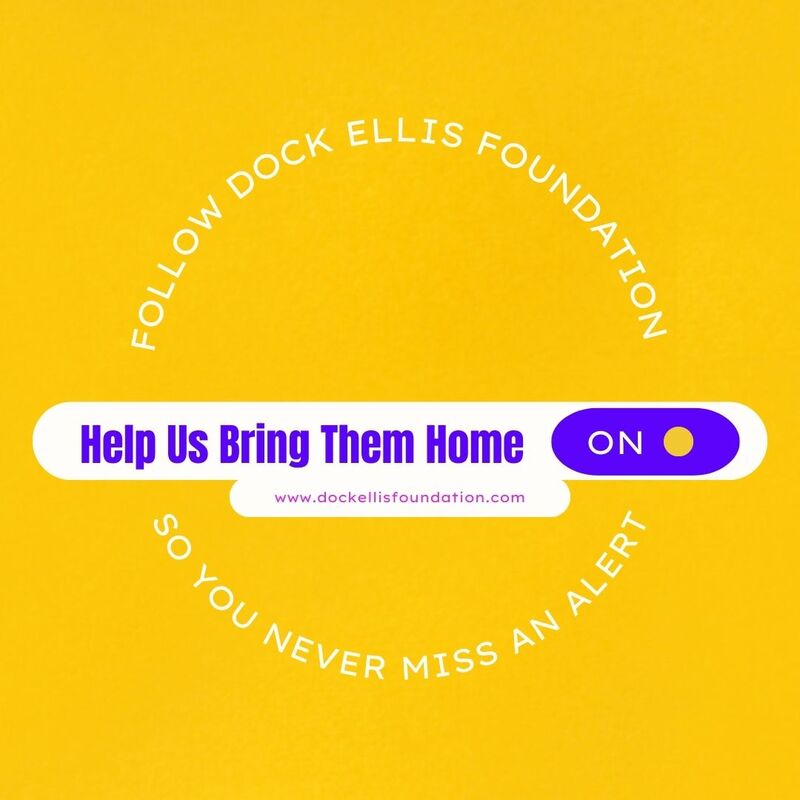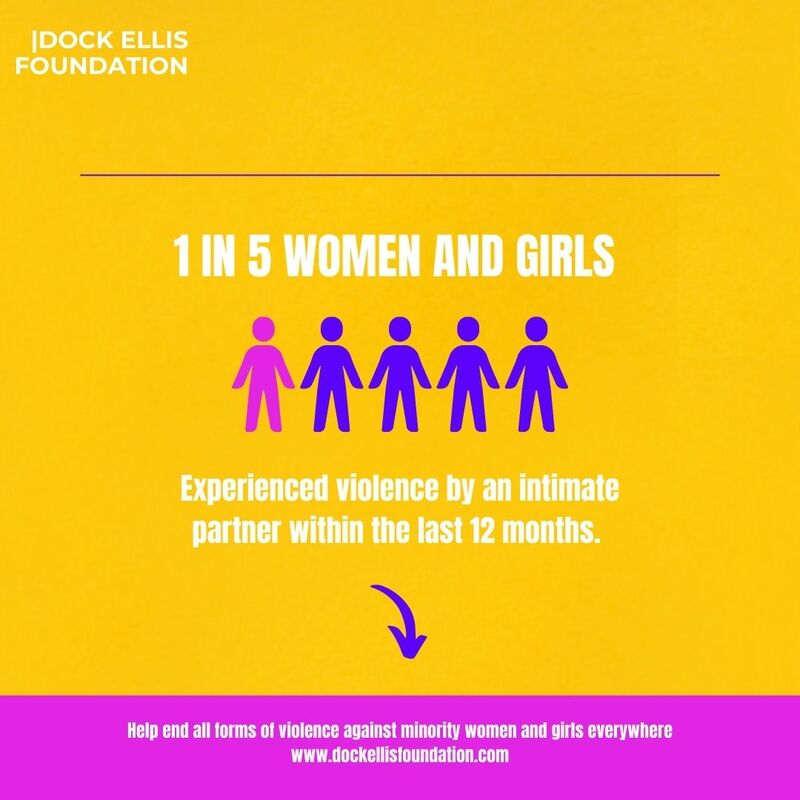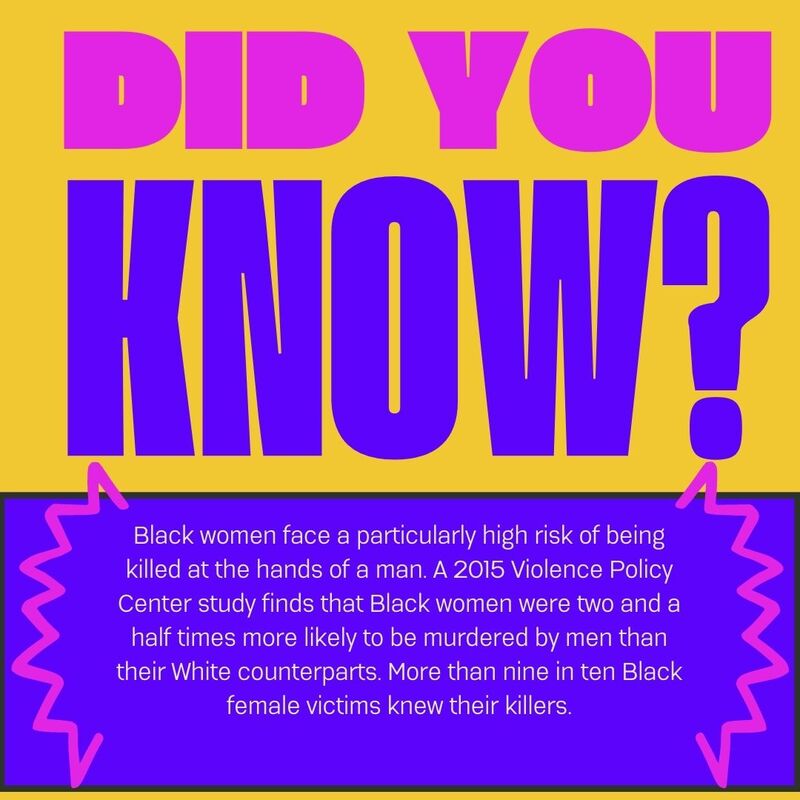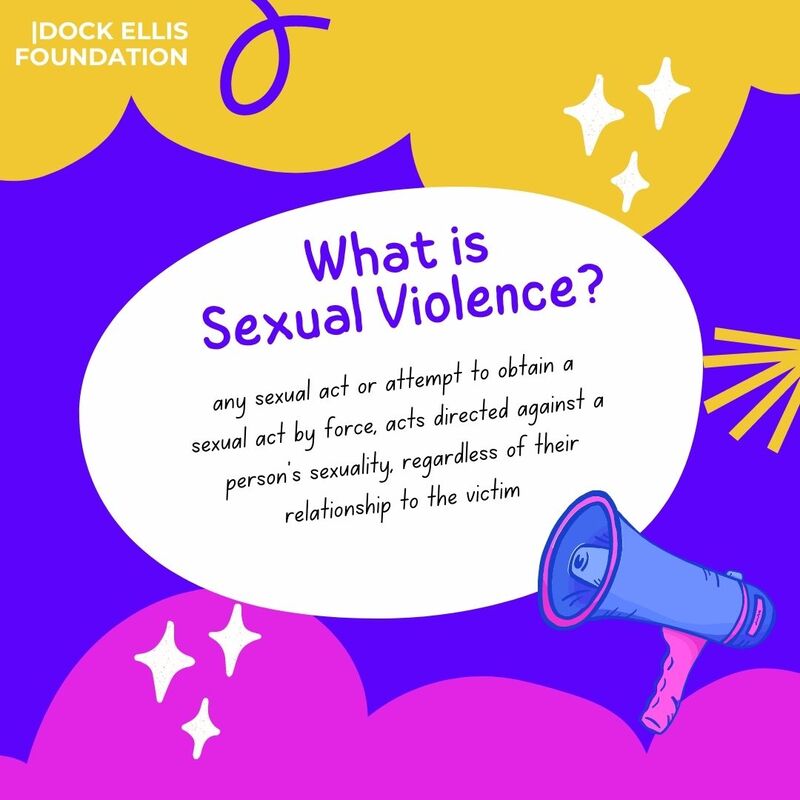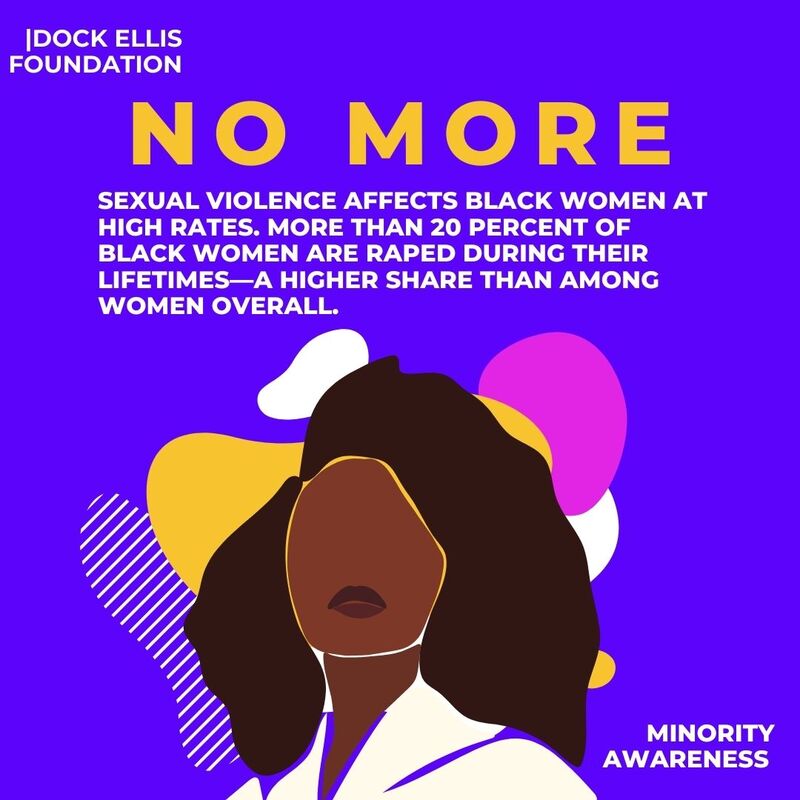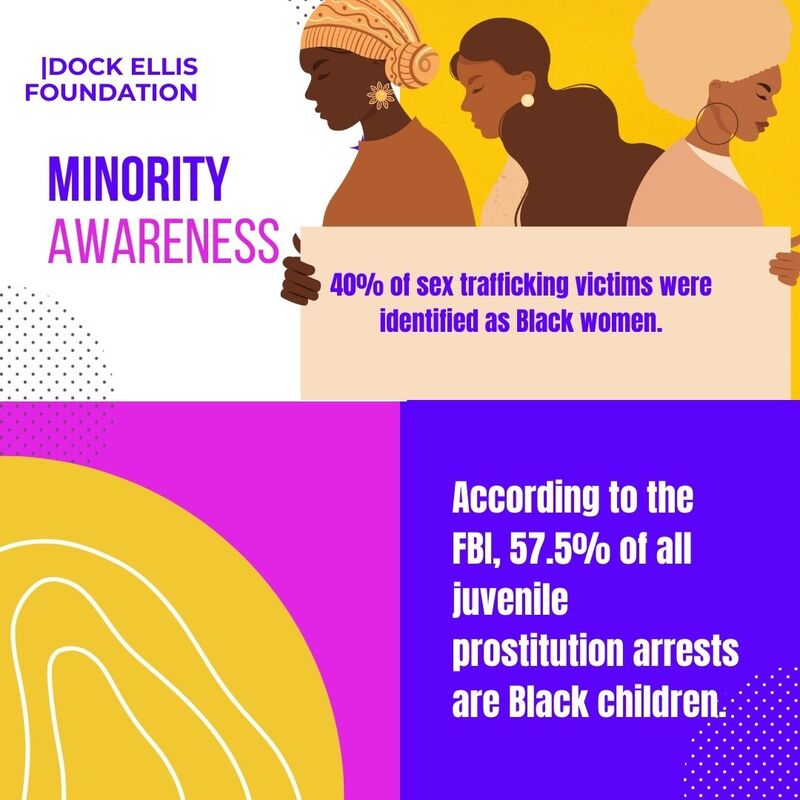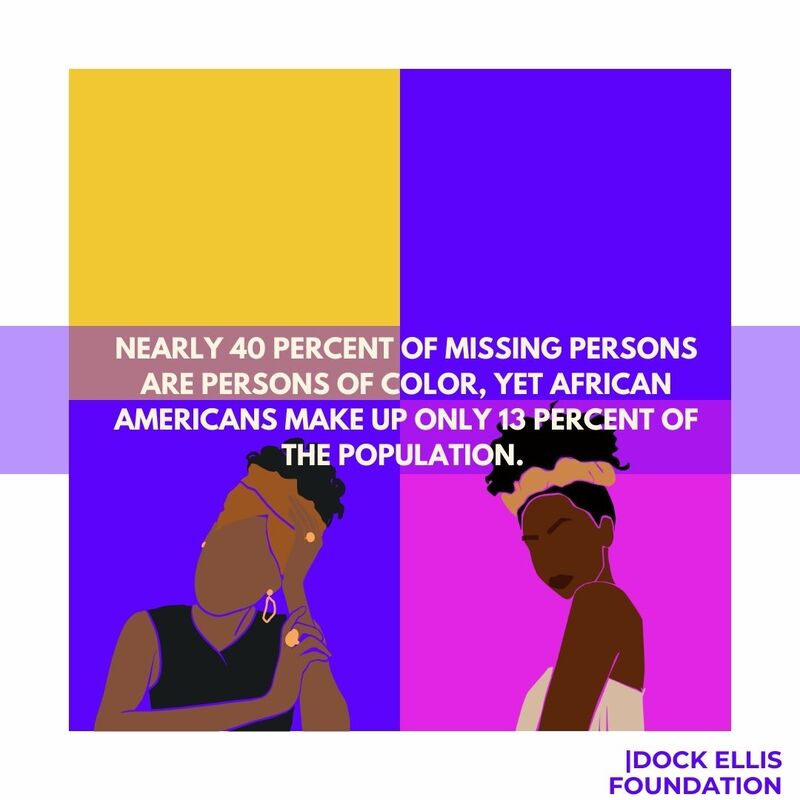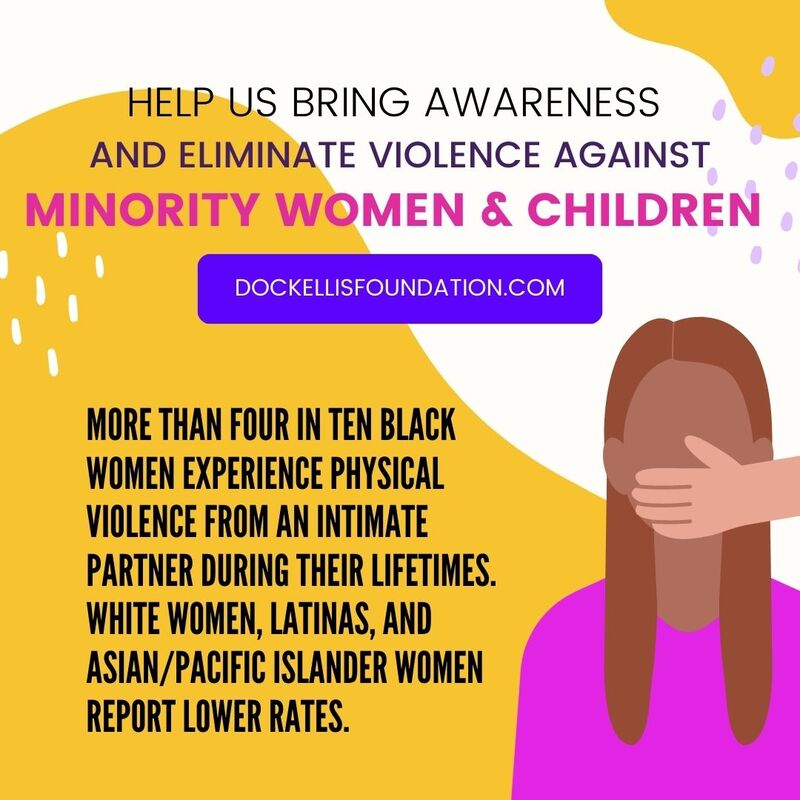|
ALERT: Missing: Briana Winston. Last seen 3/16 near Garden Wood Apts, GA. 5’01", 200lbs, black hair, brown eyes. No disability. Info? Call Det. Bryson 678-610-4713 or CCPD 770-477-3550. |
ALERT: Missing: Jovon Nelson, 24. Last seen at 3200 E. 92ND ST, gray suit, dreadlocks, neck tattoo. Info? Call 911 or Area 2 SVU: 312-747-8274. Let’s bring Jovon home. |
ANNOUNCEMENT: Join “Race to Bring Them Home”! $25 virtual race—run, walk, cycle to cover Earth’s circumference for the missing. Register now! JOIN TODAY! |
Dock Ellis Foundation does not offer monetary or emergency housing support by text or email.
GET HELP TODAY.
MISSION.
Dock Ellis Foundation's mission is to empower minority communities by bringing home missing persons. We believe that everyone deserves to be safe and have a voice, regardless of their background or economic standing. We are dedicated to providing support and resources to families and individuals who are affected by crime and violence.
OUR VISION.
Our vision is to create a society where every missing person, regardless of their racial or ethnic background, receives equitable attention, support, and resources to ensure their safe return and the well-being of their families. We envision a future where disparities in media coverage, law enforcement response, and community support for missing individuals from minority communities are eliminated, and where proactive measures are in place to address the unique challenges faced by these communities. Through collaboration, advocacy, and cultural competence, we strive to build a society where every missing person is valued, their stories are heard, and their safe return is a collective priority.
DROP THE PERCENTAGE%.
THE PROBLEM.
In recent years, the issue of missing minorities has gained increased attention, shedding light on the disparities and challenges faced by minority communities when individuals go missing. This problem has raised concerns about the adequacy of resources, support, and media coverage dedicated to cases involving missing individuals from minority backgrounds. Addressing this issue requires a multifaceted approach that encompasses community engagement, law enforcement collaboration, and policy reforms to ensure equitable support and protection for all individuals, regardless of their racial or ethnic background.
The Dock Ellis Foundation understands by addressing the issue of missing minorities requires a concerted effort to bridge the gaps in support, resources, and representation. By fostering collaboration, advocating for policy reforms, and empowering minority communities, it is possible to create a more equitable and inclusive approach to addressing missing persons cases, ensuring that all individuals receive the support and attention they deserve, regardless of their racial or ethnic background.
There are simply not enough resources, compassion or attention on our missing black and brown women, men and children. Most importantly there isn't enough support for the children devastated by a parent that has unwillingly vanishing. Many families are dealing with lack of cultural awareness or competency by the entities they rely on to help, lack of sensitivity to victims and their families, poor or nonexistent communication with families, preconceived judgment for families with criminal records and survivors, chronic lack of cases being brought to justice.
Missing-person cases involving people of color in the U.S. are less likely to be solved due to the lack of attention they get when reported missing. Many disappearances in the Black community stem from human trafficking, domestic violence and mental health incidents.
There are simply not enough resources, compassion or attention on our missing black and brown women, men and children. Most importantly there isn't enough support for the children devastated by a parent that has unwillingly vanishing. Many families are dealing with lack of cultural awareness or competency by the entities they rely on to help, lack of sensitivity to victims and their families, poor or nonexistent communication with families, preconceived judgment for families with criminal records and survivors, chronic lack of cases being brought to justice.
Missing-person cases involving people of color in the U.S. are less likely to be solved due to the lack of attention they get when reported missing. Many disappearances in the Black community stem from human trafficking, domestic violence and mental health incidents.
According to 2021 FBI data, Black people make up 31% of missing person reports but only 14% of the US population. White people, meanwhile, make up 54% of missing person reports and 76% of the US population.
HOW CAN WE HELP?
One of the key services offered by the foundation is family support and advocacy. This includes access to resources, counseling, and legal guidance, providing a compassionate environment for families to navigate the complexities of their situation. The foundation also focuses on case advocacy and resource allocation, working tirelessly to ensure equitable treatment and support for missing persons cases from minority backgrounds.
Awareness and media campaigns are another critical aspect of the foundation's work. These campaigns aim to amplify the stories of missing individuals from minority communities, engaging the public and advocating for change. The foundation understands the power of media attention in spreading awareness for missing persons and provides guidance on effectively communicating these stories.
The Dock Ellis Foundation also offers a tipline and additional resources such as poster group searches and billboard campaigns to aid in the search for missing persons. They emphasize the importance of community support and the use of technology to harness people's willingness to help.
For families facing the unimaginable situation of a missing loved one, the Dock Ellis Foundation offers a beacon of hope and a path to reunification. Their comprehensive services and unwavering dedication to the cause are invaluable assets in the effort to bring every missing person home.
Awareness and media campaigns are another critical aspect of the foundation's work. These campaigns aim to amplify the stories of missing individuals from minority communities, engaging the public and advocating for change. The foundation understands the power of media attention in spreading awareness for missing persons and provides guidance on effectively communicating these stories.
The Dock Ellis Foundation also offers a tipline and additional resources such as poster group searches and billboard campaigns to aid in the search for missing persons. They emphasize the importance of community support and the use of technology to harness people's willingness to help.
For families facing the unimaginable situation of a missing loved one, the Dock Ellis Foundation offers a beacon of hope and a path to reunification. Their comprehensive services and unwavering dedication to the cause are invaluable assets in the effort to bring every missing person home.
THE IMPORTANCE OF SUPPORT FROM MISSING PERSON ORGANIZATIONS
When a loved one goes missing, the immediate aftermath is a critical time for families. The support from missing person organizations can be invaluable during this distressing period. These organizations provide a range of services, from emotional support to practical assistance in search efforts, which are essential for families grappling with the uncertainty and pain of having a missing relative.
The assistance from these organizations is particularly crucial for black and brown families, who often face systemic barriers and a lack of adequate support. Studies have shown that cases involving missing persons of color tend to receive less media attention and are less likely to be met with the urgency they require. This disparity can lead to delays in search efforts and a reduced chance of safe recovery.
Statistics on the recovery rates of missing minorities in the US are concerning. While comprehensive data is difficult to come by, it is clear that minorities are underrepresented in safe recovery statistics. This underrepresentation is a stark reminder of the inequalities that persist in our society, including the realm of public safety and crisis response.
The Dock Ellis Foundation recognizes the importance of addressing these disparities and providing targeted support to families of color. By offering resources, guidance, and advocacy, the foundation aims to bridge the gap in support and ensure that all families receive the help they need when facing the unimaginable situation of a missing loved one.
Safe recovery rates are an essential measure of the effectiveness of the response to missing person cases. While the exact statistics vary, it is evident that the rate of safe recoveries is lower for minorities in the US. This highlights the need for continued efforts to improve the support systems for these communities and ensure that every missing person, regardless of their background, has the best possible chance of being found safe.
The Dock Ellis Foundation is committed to this cause, working tirelessly to provide assistance, raise awareness, and advocate for families of missing persons. It is through this dedicated work that we can hope to see an improvement in the safe recovery rates for all missing persons in the US.
The assistance from these organizations is particularly crucial for black and brown families, who often face systemic barriers and a lack of adequate support. Studies have shown that cases involving missing persons of color tend to receive less media attention and are less likely to be met with the urgency they require. This disparity can lead to delays in search efforts and a reduced chance of safe recovery.
Statistics on the recovery rates of missing minorities in the US are concerning. While comprehensive data is difficult to come by, it is clear that minorities are underrepresented in safe recovery statistics. This underrepresentation is a stark reminder of the inequalities that persist in our society, including the realm of public safety and crisis response.
The Dock Ellis Foundation recognizes the importance of addressing these disparities and providing targeted support to families of color. By offering resources, guidance, and advocacy, the foundation aims to bridge the gap in support and ensure that all families receive the help they need when facing the unimaginable situation of a missing loved one.
Safe recovery rates are an essential measure of the effectiveness of the response to missing person cases. While the exact statistics vary, it is evident that the rate of safe recoveries is lower for minorities in the US. This highlights the need for continued efforts to improve the support systems for these communities and ensure that every missing person, regardless of their background, has the best possible chance of being found safe.
The Dock Ellis Foundation is committed to this cause, working tirelessly to provide assistance, raise awareness, and advocate for families of missing persons. It is through this dedicated work that we can hope to see an improvement in the safe recovery rates for all missing persons in the US.
THE DATA WILL SHOW THAT:
OUR JOURNEY
HELP US BRING THEM HOME
|
|







